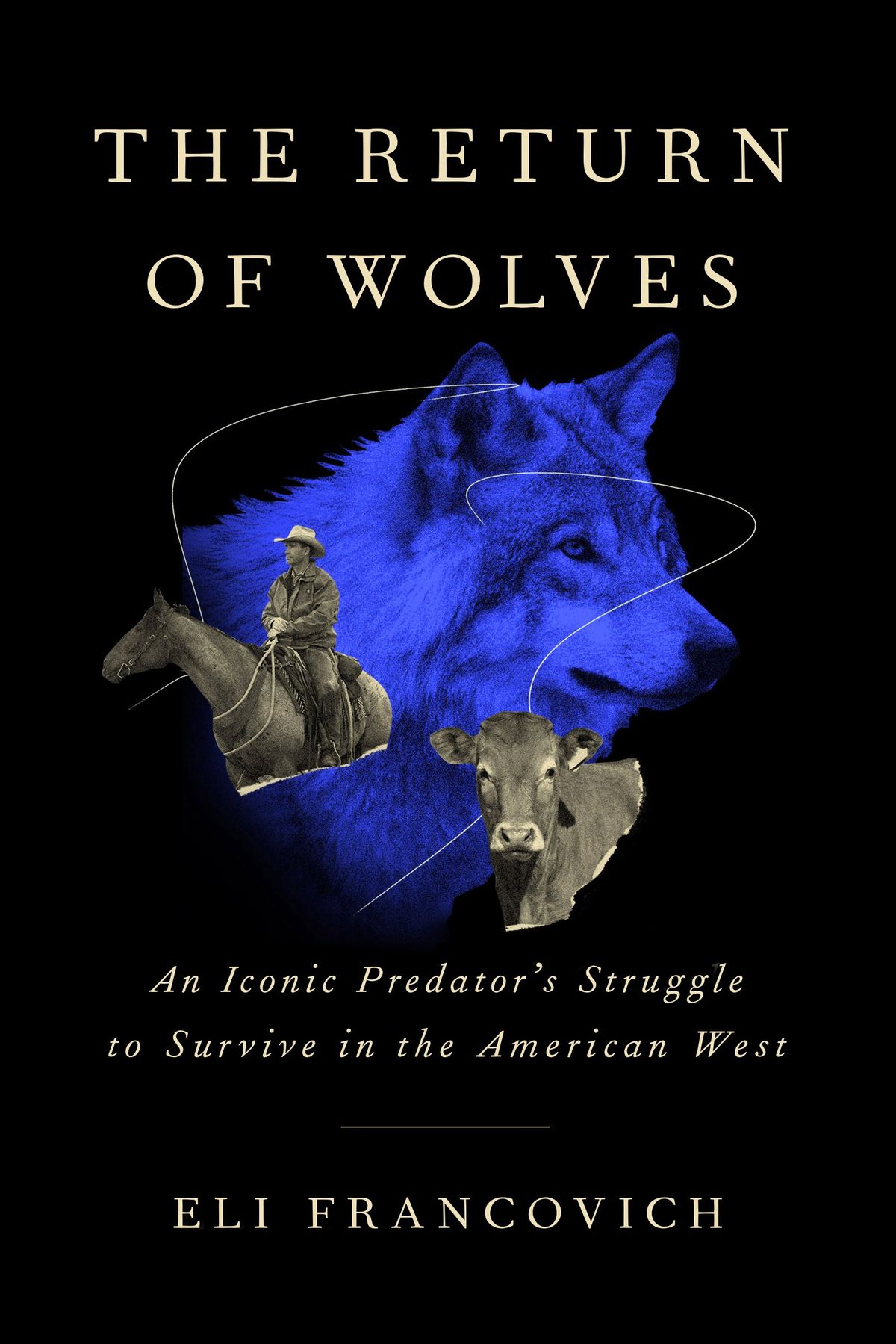Covering the conflict of wolves: Eli Francovich’s book ‘The Return of the Wolves’ dives into the divisive question of wolf reintroduction

Eli Francovich in “The Return of Wolves,” has accomplished what many newspaper reporters dream of but only few achieve – chased the story he was missing.
Any of us who have worked the daily newspaper grind question ourselves every day. Under the demands to produce words on tight deadlines, and to follow big issues in bitesize bits, what greater truth are we missing? Francovich asked that same question while covering the repopulation of wolves in the wild of Washington for these very pages.
The result is a deep dive into the wilderness that not only shows the struggles of those who strive to find an environmental balance between humans and nature but also reveals much about what divides us politically as a society.
Who knew that the clashes of ideology that play out every evening on Fox News and MSNBC cable outlets would so succinctly be represented in struggles of the wolf to survive alongside humans. Yet here it in these 214 pages of hardscrabble research.
Francovich describes his journey deep into wolf country as a search for his journalistic soul as well as to find what was really happening to the wolf. It started with people on both sides criticizing his coverage as being biased and incomplete. People supporting the repopulation of wolves were criticizing him for being “anti-wolf.” Ranchers losing cattle, and with them, money to the predators were claiming Francovich was on the wolves’ side.
“I didn’t know it then, but I was experiencing the natural limits of rational and reductive thinking,” Francovich writes. “Facts and the scientific process can be invaluable tools, but when it comes to looking at issues where people, animals and culture intersect, they often fall short.”
It is true with the recent public health issues and climate change. Francovich found the controversies surrounding the wolves of Washington gave a clear picture into how one issue can fiercely divide people.
One of those divides occurs because people who become the most active in supporting environmental causes live in the glass and metal forests of urban landscapes. Their view of nature is the weekend hike or the camping trip.
Those who actually live out there, who depend on the land for livelihoods, can have a different view of the balances between nature and humans. Theirs is less bliss and more of a struggle to conquer the unruly forests that will overgrow when neglected.
Francovich provides historical and data-backed views that show both sides have some misplaced views of what’s really happening out in the wild.
Driving the story is Daniel Curry, a hard-working range rider who strives to be the balance between people and the wolf. He’s dedicated to working with ranchers to help keep their cattle safe from wolves while protecting the wolves from sometimes trigger-happy ranchers. Curry, who seems to prefer the company of animals to people, is a rare person who sees both sides of the debate and works toward the great compromise necessary.
Still, the sides fight. They don’t listen to each other. They fight more. Francovich struggles to understand the divisions, and he takes us along for the ride, sometimes on horseback, sometimes by snowmobile.
Then he sees a wolf in the wild. It’s a moment of clarity.
“Over the following days, as I stew in the aftereffects of this encounter, I come to the following conclusion, a conclusion that is hardly mine to claim: The wolf is a reminder. A reminder that humans are not the only creatures with desires and wills.”
We meet Valerius Geist, a crusty wildlife scientist determined to bring history into context for fellow scientists who ignored the past in search of the future. We follow Jerry Francis, a rancher putting innovative practices to work in an attempt to live in peace with the wild wolf – “one of those rare human beings who, upon taking in some new information, manages to buck tradition and habit and actually change.”
“The Return of the Wolves” goes beyond the story of repopulating a sometimes romanticized, sometimes demonized, animal back to the wild in Washington. It’s also a story about how policymakers, activists and those who live “out there” can alienate one another by living in their own echo chambers.
Francovich with this book aims to show both sides’ attributes and shortcomings. As it turns out, both sides should spend more time listening to the other. Turns out, they have more in common than they imagine.
Ron Sylvester has been a journalist for more than 40 years with publications including the Orange County Register, Las Vegas Sun, Wichita Eagle and USA Today. He lives in rural Kansas.